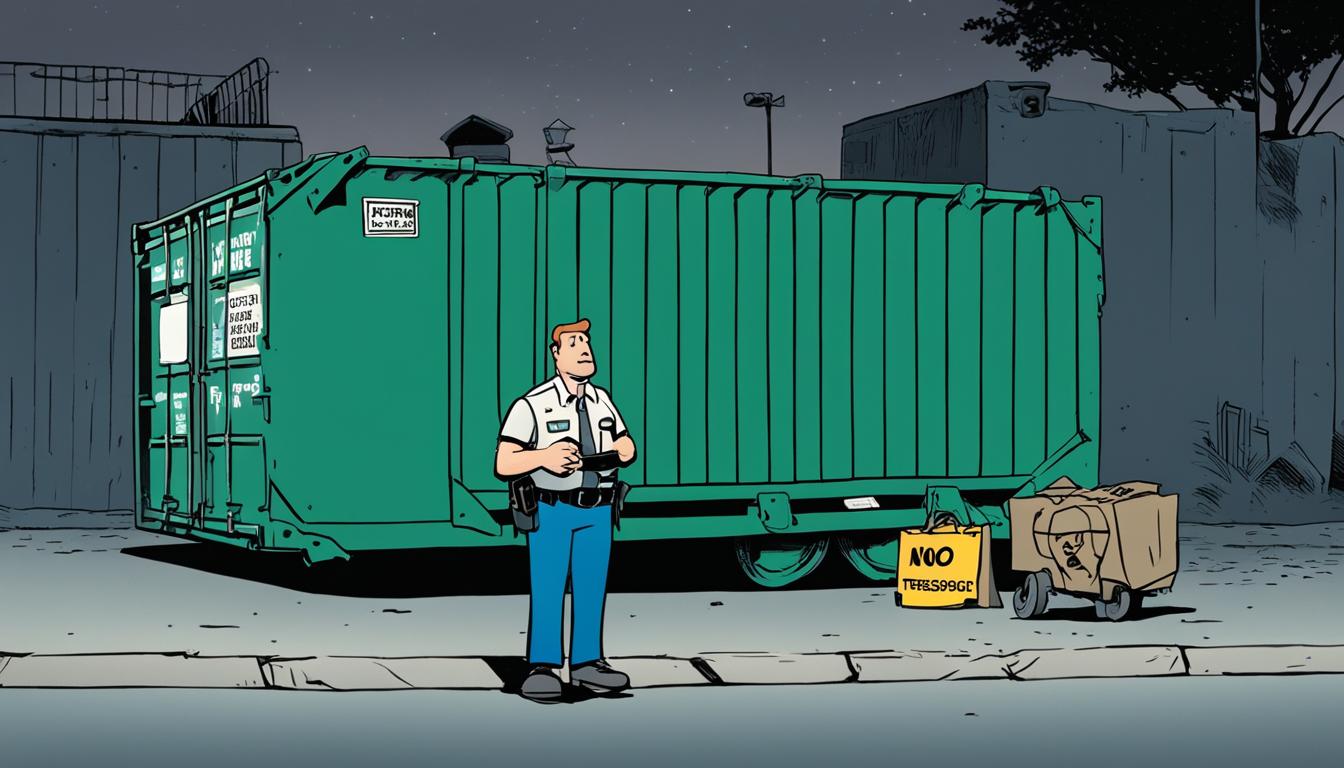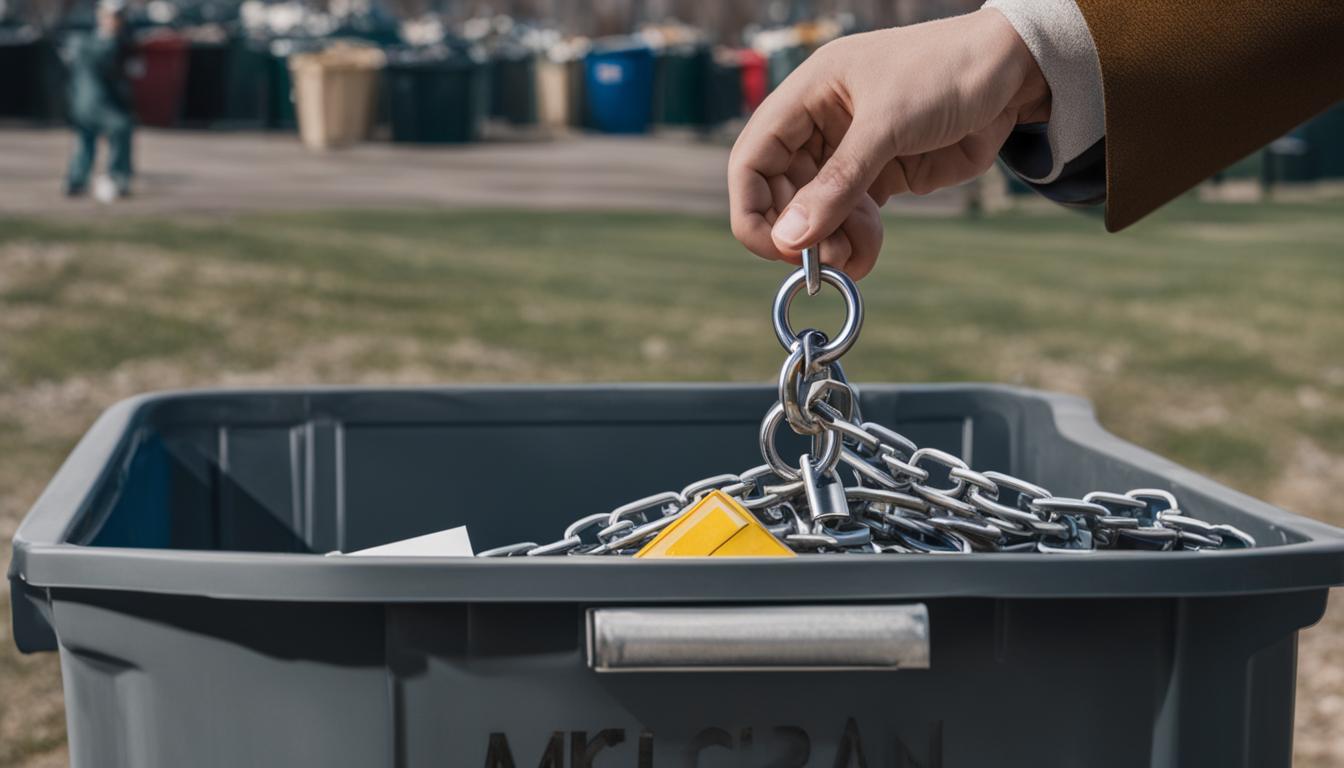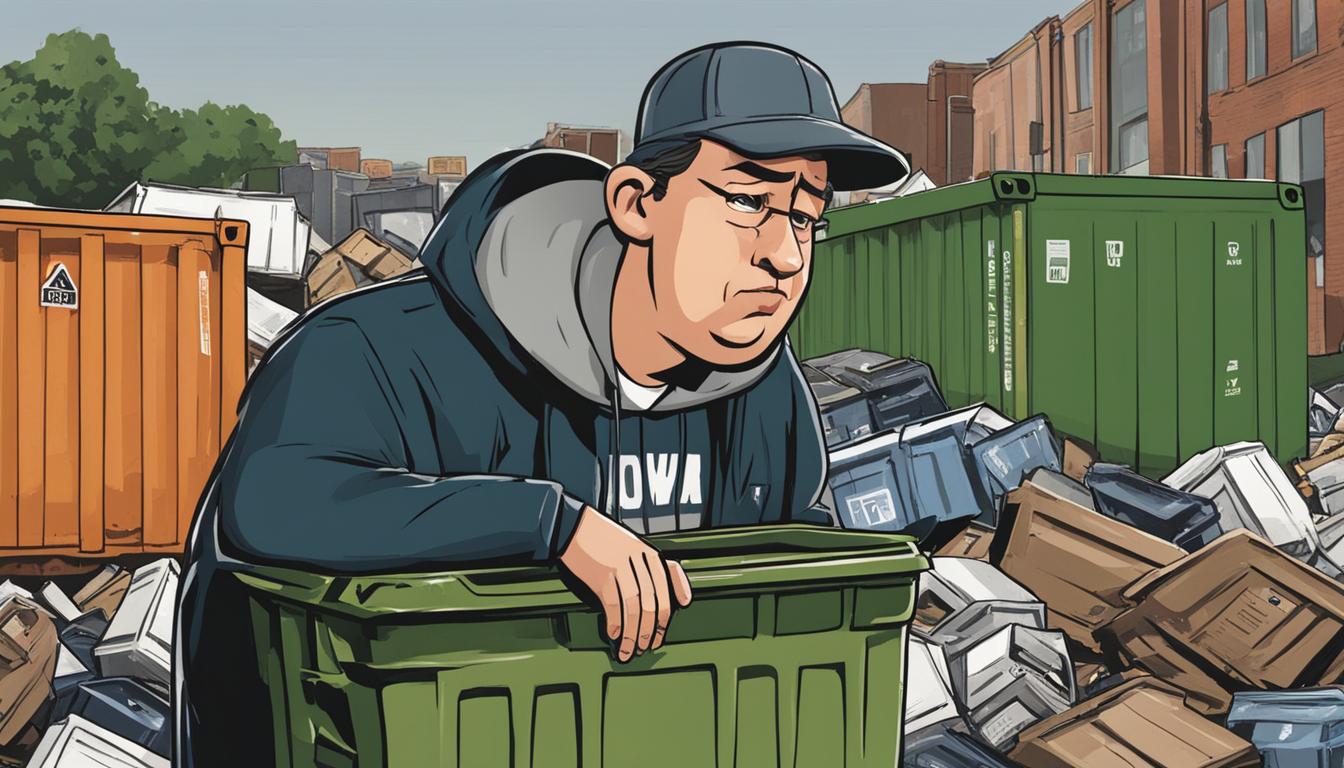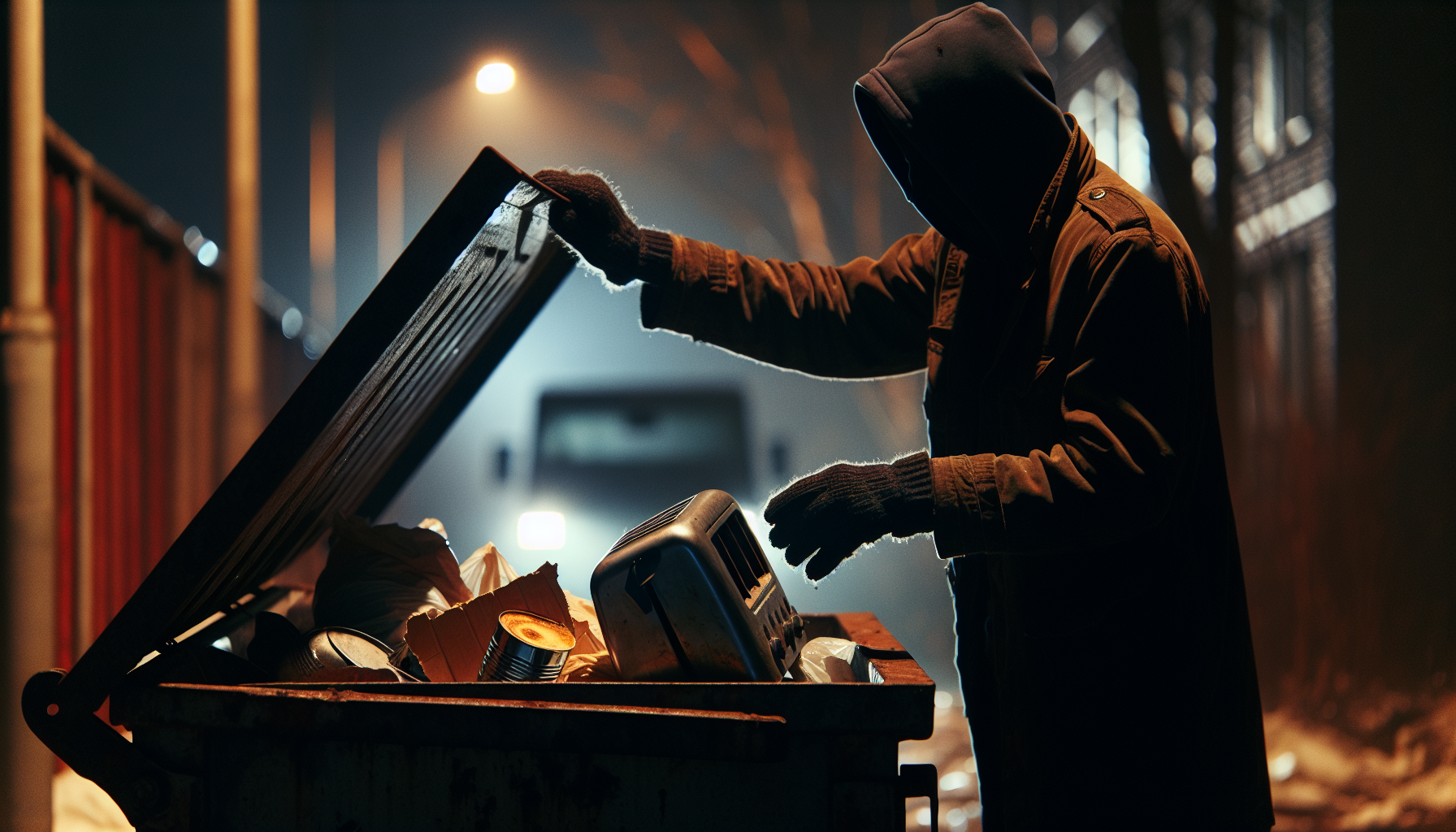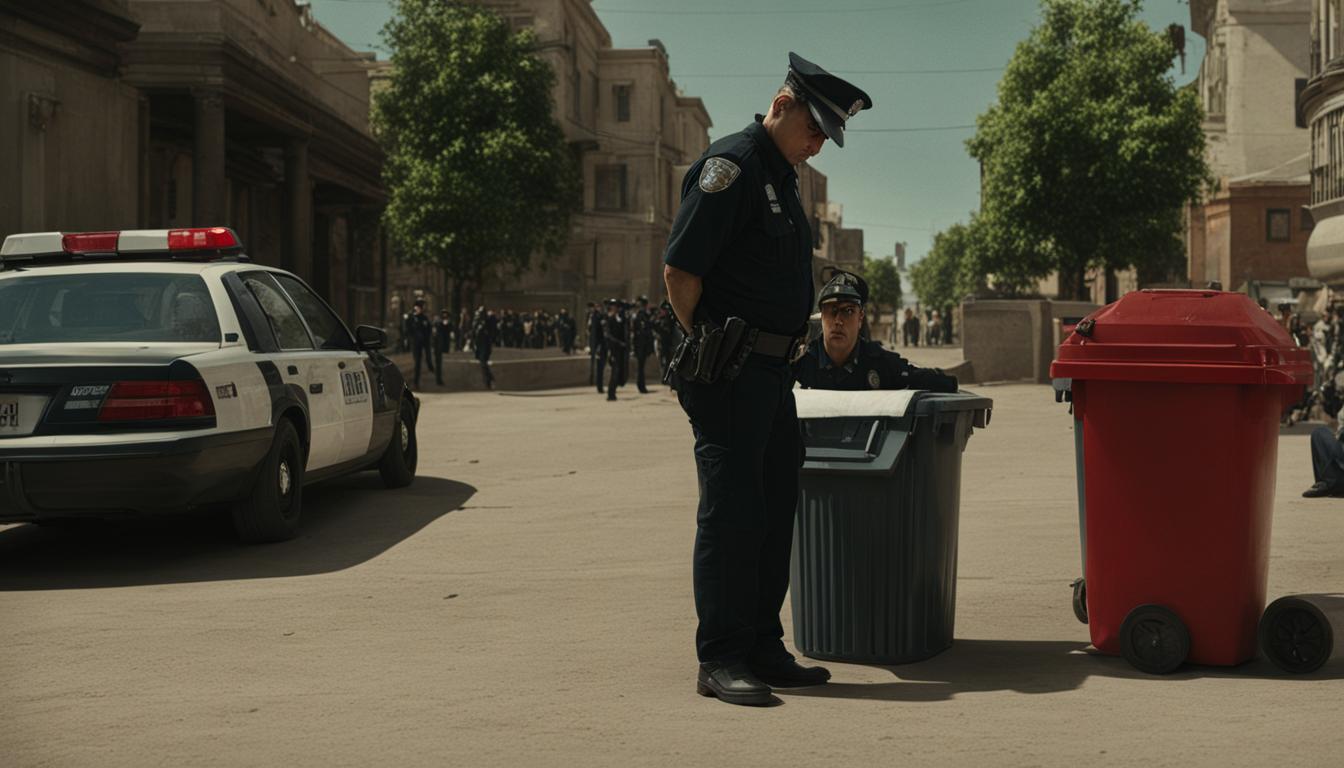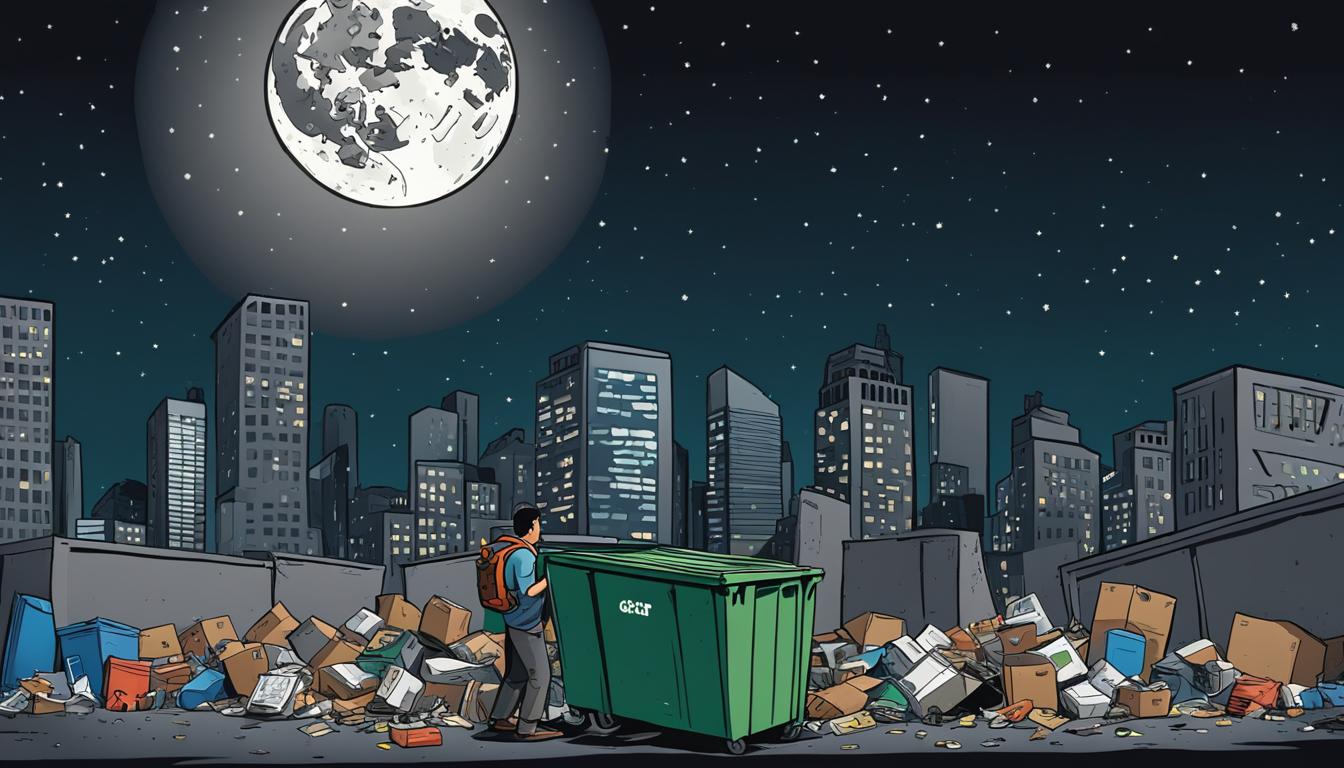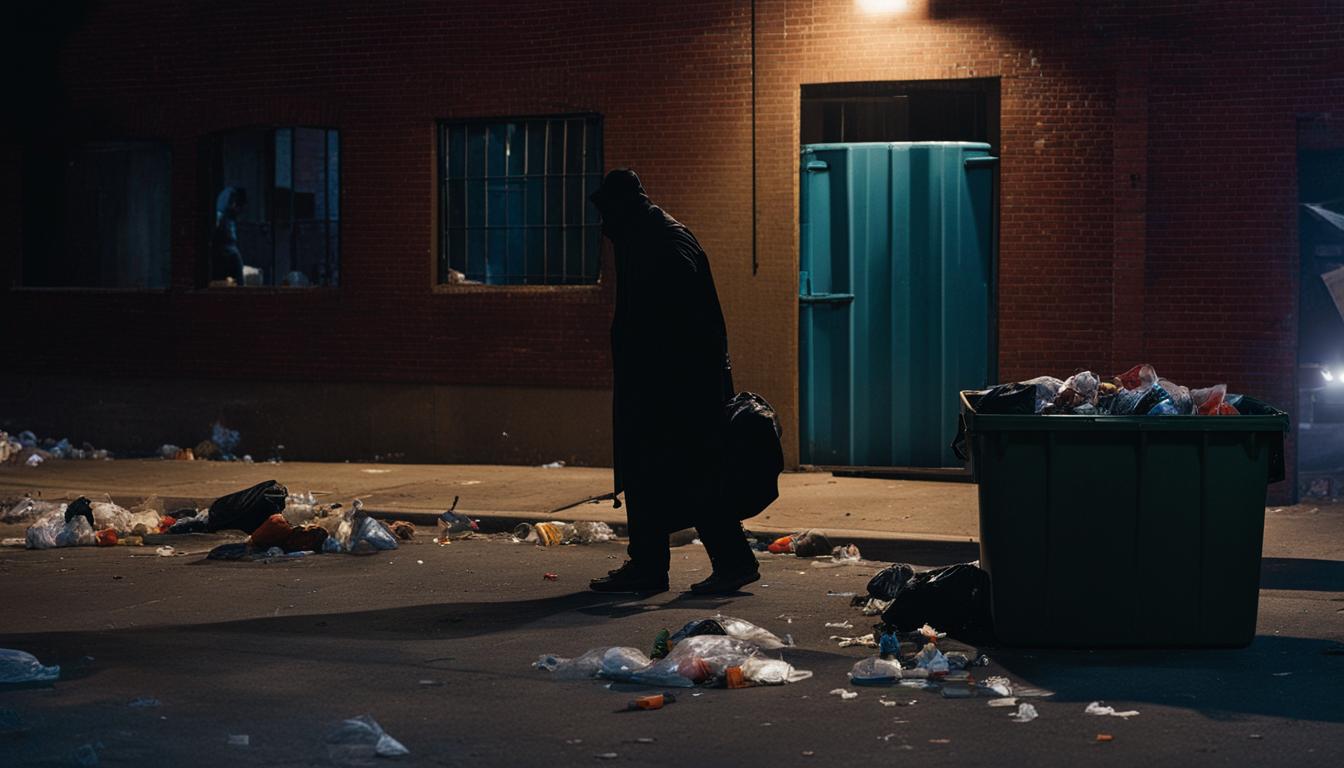Disclosure: This Post Contains Affiliate Links; We earn a commission on purchases.
Dumpster diving, also known as scavenging from dumpsters, involves searching through trash for reusable or sellable items. Many individuals wonder about the legality of dumpster diving in North Carolina and the specific laws and regulations surrounding this practice.
While North Carolina does not have a specific state law against dumpster diving, there are other laws and regulations that can affect its legality. For example, if a dumpster is on private property, diving without permission may be considered trespassing, which is against the law. Additionally, some cities or towns in North Carolina may have their own rules or ordinances regarding dumpster diving.
If you are interested in taking part in dumpster diving, it is always best to check with local authorities or research the rules before engaging in the activity. Understanding the regulations can help ensure that you are engaging in dumpster diving within the bounds of the law.
Key Takeaways:
- Dumpster diving is the practice of searching through trash for usable or sellable items.
- North Carolina does not have a specific law against dumpster diving, but other laws and regulations can affect its legality.
- Diving without permission on private property may be considered trespassing, which is against the law.
- Some cities or towns in North Carolina may have their own rules or ordinances regarding dumpster diving.
- It is important to check with local authorities or research the rules before engaging in dumpster diving to avoid potential legal issues.
North Carolina’s Trespassing Laws
In North Carolina, trespassing on private property is against the law. If a dumpster is located on private property, such as behind a store or restaurant, accessing it without permission can be considered trespassing. The legal consequences of trespassing can include fines or even court appearances. Therefore, it is important to avoid diving in dumpsters on private property unless you have explicit permission to do so.
| Trespassing Laws in North Carolina | Legal Consequences |
|---|---|
| Trespassing on private property | Fines or court appearances |
| Accessing dumpsters on private property without permission | Trespassing charges and penalties |
Local Regulations on Dumpster Diving in North Carolina
While there is no statewide law specifically addressing dumpster diving in North Carolina, it is important to be aware of local regulations and ordinances that may impact the practice. Each city or town may have its own rules regarding dumpster diving, which can affect the legality of the activity in specific areas. To ensure compliance and avoid legal issues, it is advisable to check with the local authorities or conduct online research to determine whether dumpster diving is allowed in the particular city or town where you plan to scavenge.
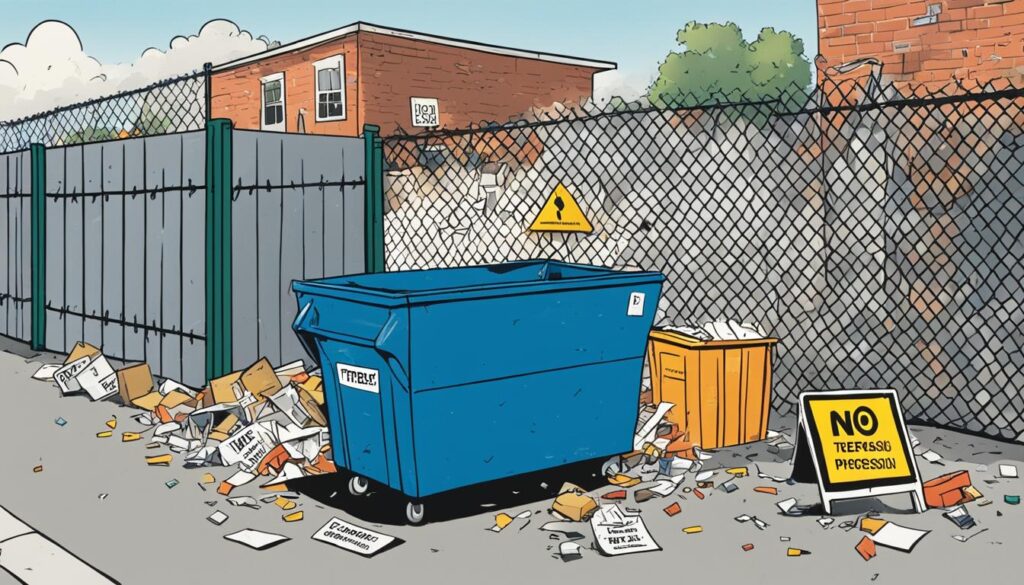
In some areas, city ordinances may explicitly address the legality and restrictions of dumpster diving. These ordinances are put in place to maintain the cleanliness and safety of public spaces, as well as to prevent property damage. Therefore, it is crucial to familiarize yourself with the local laws and regulations to avoid any potential legal consequences.
“Before diving into dumpsters in North Carolina, make sure to check your local laws and regulations. Ignorance of the local rules is not an excuse, so it’s essential to stay informed to avoid any unnecessary legal trouble.”
Potential Consequences of Breaking Dumpster Diving Rules
Engaging in dumpster diving without adhering to the relevant laws and rules can lead to various consequences. It is essential to understand and comply with these regulations to avoid any potential legal trouble.
Legal Penalties
If caught trespassing on private property while dumpster diving, you may face legal penalties. These penalties can include fines and even court appearances. Violating trespassing laws can have serious consequences, impacting your record and potentially leading to further legal trouble.
Fines for Trespassing
Trespassing on private property is against the law, and dumpster diving without permission on private property can be considered trespassing. If caught, you may be subject to fines imposed by local authorities. The amount of the fines can vary depending on the jurisdiction and the circumstances of the trespassing incident.
Court Appearances
In some cases, engaging in illegal dumpster diving can result in court appearances. This means you will have to appear before a judge, who will determine the outcome of your case. Court appearances can be time-consuming and costly, in addition to potentially impacting your personal and professional life.
Potential Legal Trouble
Engaging in dumpster diving without following the relevant rules can lead to potential legal trouble. This can include being involved in legal proceedings, facing fines, or even jeopardizing your reputation. It is crucial to prioritize compliance with the law and respect private property boundaries to avoid these consequences.
By understanding and abiding by the laws and regulations related to dumpster diving, you can enjoy the activity without facing any potential legal repercussions. It is advisable to thoroughly research the laws in your specific area and consult local authorities if you have any doubts. Always prioritize safety, respect private property, and follow the rules to minimize the risk of encountering legal trouble in relation to dumpster diving.
Reasons People Dumpster Dive
There are several motivations for engaging in dumpster diving. For some, it’s all about finding free items that can be useful or sold for extra cash. Others, on the other hand, are driven by environmental concerns and the desire to reduce waste. Dumpster diving presents an opportunity to salvage usable items that would otherwise end up in landfills.
One of the main motivations for dumpster diving is the prospect of finding free items. Many people have discovered perfectly functional items, such as furniture, electronics, or clothing, in dumpsters. These items can be cleaned up, repaired if necessary, and put to good use. Some even turn dumpster diving into a side hustle by selling these found items online or at flea markets.
Environmental concerns are also a significant motivation for dumpster diving. By rescuing items that would otherwise be discarded, dumpster divers contribute to the reduction of waste. This practice aligns with the growing movement towards sustainable living and conscious consumption. It’s a way to give items a second chance at being useful, rather than adding to the already overflowing landfills.
“Dumpster diving allows me to find unique items without spending a dime. It’s like going on a treasure hunt, and it’s amazing to see how much perfectly good stuff people throw away,” said Rachel, an avid dumpster diver from North Carolina.
Dumpster diving can be an eye-opening experience that challenges our perceptions of waste and consumerism. It’s a tangible way to witness the sheer volume of usable items that are needlessly discarded every day. By participating in dumpster diving, individuals actively contribute to the movement towards a more sustainable and waste-conscious society.
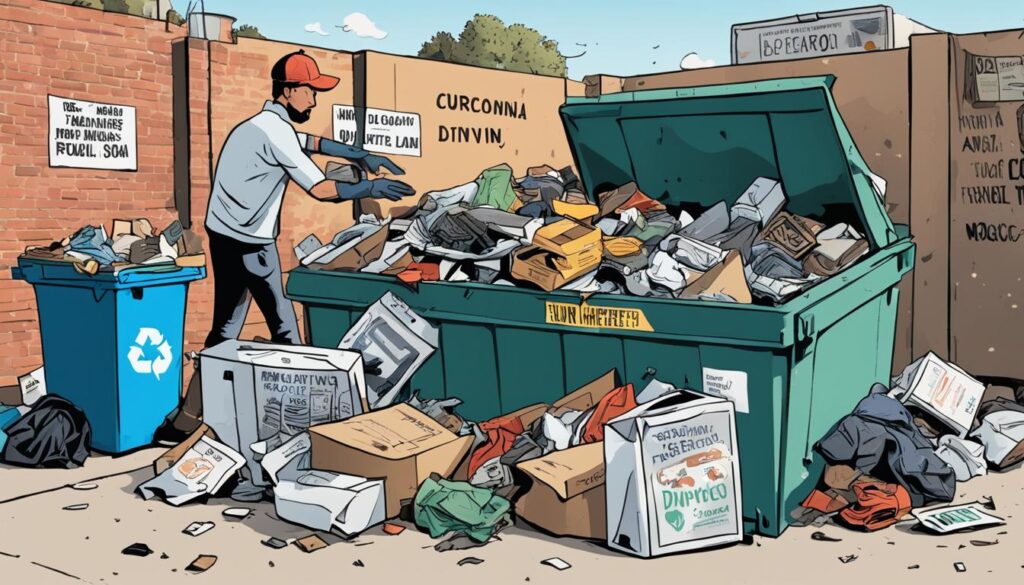
| Motivations for Dumpster Diving | Examples |
|---|---|
| Finding free items | Furniture, electronics, clothing |
| Environmental concerns | Reducing waste, sustainable living |
Safety Tips for Dumpster Diving
When engaging in dumpster diving, it is essential to prioritize your safety and take necessary precautions. By following these safety tips, you can ensure a positive and secure experience:
- Wear protective gloves: Before diving into a dumpster, always put on a pair of sturdy gloves to protect your hands from sharp objects or hazardous materials.
- Avoid dangerous items: Be cautious and avoid taking anything that could be potentially dangerous, such as broken glass or chemicals. It’s always better to err on the side of caution.
- Be respectful: While searching through trash, be mindful of your surroundings and avoid creating a mess. It is important to leave the dumpster in the same condition as you found it to maintain a positive image and avoid potential legal issues.
Staying safe while dumpster diving
Dumpster diving can be an exciting and rewarding activity, but it is crucial to prioritize safety. By wearing protective gloves, avoiding dangerous items, and being respectful, you can minimize any potential risks and enjoy a safe experience.
“The best way to stay safe while dumpster diving is to be cautious and use common sense. By following these safety tips, you can enjoy the benefits of scavenging without putting yourself at risk.”
Recommended Safety Equipment for Dumpster Diving
| Equipment | Description |
|---|---|
| Protective Gloves | Sturdy gloves to prevent injuries from sharp objects or hazardous materials. |
| Flashlight | Illuminate dark dumpsters to improve visibility and identify potential hazards. |
| Dust Mask | Protect your respiratory system from dust or other airborne particles. |
The Environmental Benefits of Dumpster Diving
Dumpster diving not only offers a unique way to find usable items, but it also has positive environmental impacts by reducing waste and giving items a second life. By salvaging items from dumpsters that would otherwise end up in landfills, dumpster divers contribute to reducing the amount of waste that society produces.
When individuals salvage usable items from dumpsters, they prevent those items from adding to the already overflowing landfills. This practice aligns with efforts to protect the environment and promote sustainability. By giving these items a second chance, dumpster divers are effectively reducing the demand for new products and minimizing the extraction and production of raw materials.
Furthermore, dumpster diving promotes a circular economy by extending the lifespan of various items. Usable goods that are found through this practice are often repaired, repurposed, or donated, further reducing the need for new production. This approach fosters resourcefulness and encourages a more conscious and responsible attitude towards consumption.
By embracing dumpster diving and salvaging usable items, individuals actively contribute to reducing waste and minimizing the environmental impact of excessive consumption. They embody the principles of the “reduce, reuse, recycle” mantra and showcase the potential for a more sustainable future.
Key Environmental Benefits of Dumpster Diving:
- Reduces waste sent to landfills
- Minimizes the extraction and production of raw materials
- Promotes a circular economy and resourcefulness
- Encourages conscious consumption
By actively participating in dumpster diving practices and supporting initiatives that prioritize waste reduction, individuals can make a significant impact on the environment while also benefiting personally from the useful items they find.
Conclusion
In North Carolina, dumpster diving is not explicitly illegal. However, it is important to be aware of the factors that can affect its legality, such as trespassing laws and local regulations. To avoid potential legal consequences, it is crucial to familiarize yourself with the applicable laws and rules.
Prioritizing safety and respect is essential when engaging in dumpster diving. Be sure to wear protective gloves to avoid injuries and avoid taking anything that could be hazardous. Additionally, it is important to be respectful and not create a mess while searching through dumpsters.
To ensure you are following the rules of dumpster diving, it is recommended to check with local authorities or research online for specific regulations in your area. By doing so, you can enjoy the benefits of dumpster diving, such as reducing waste and finding usable items, while minimizing any potential risks.
Source Links
- https://original.newsbreak.com/@charles-1735298/3172083199203-exploring-north-carolina-laws-is-it-against-the-law-to-dumpster-dive
- https://nextdaydumpsters.com/blog/is-construction-dumpster-diving-illegal/
- https://en.wikipedia.org/wiki/Dumpster_diving

Subscribe to Our Newsletter

